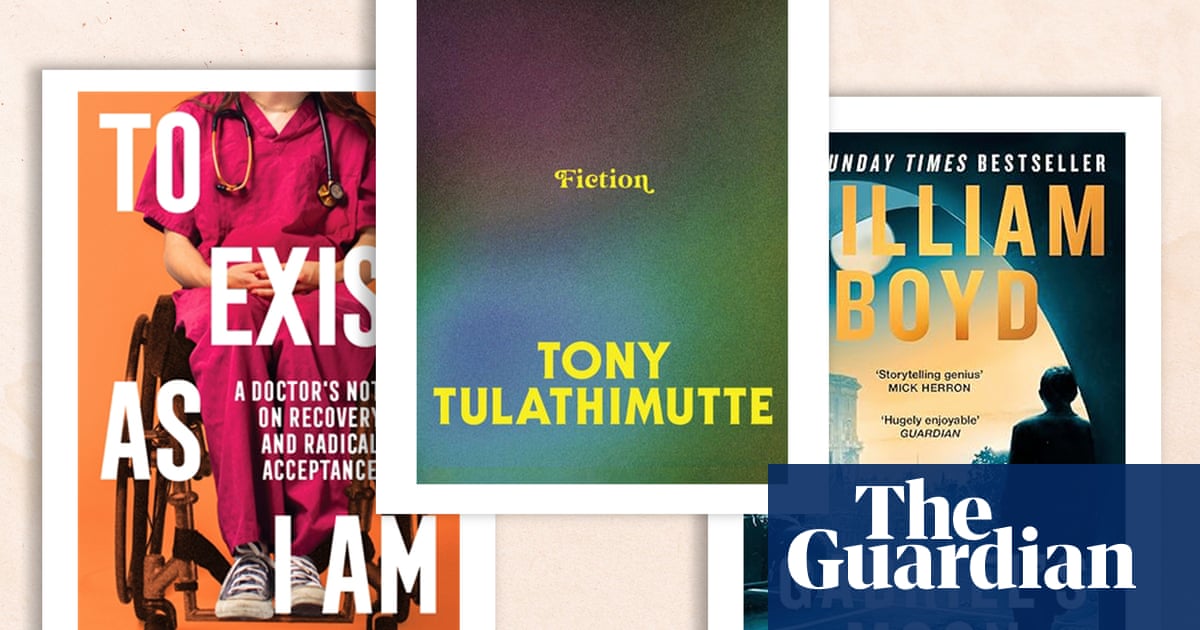I’ve just mainlined Rebecca Solnit’s latest collection of essays,No Straight Road Takes You There, in two sittings. It’s such a stirring, sinewy antidote to despair that I want to prescribe it to everyone. Solnit stares unflinchingly at the facts of our age – Trump, Gaza, climate catastrophe, the assault on truth – and argues for the power of uncertainty as opposed to foregone conclusions. Yes, the future looks bleak, but that does not mean we are doomed. Only giving up guarantees that. Instead, persevere.
The Safekeep, whichwon this year’s Women’s prizefor fiction, is an extraordinarily accomplished first novel from the Dutch author Yael van der Wouden. Set in the Netherlands 16 years after the end of the second world war, it is an exquisite character study, a historical reckoning and a slow-burn forbidden romance.
To Exist As I Am, which has just come out, is an account by a young doctor,Grace Spence Green, of being rendered paraplegic while at medical school when a man lands on her after jumping from three floors above. The collision breaks her spine in multiple places, permanently paralysing her from the waist down. To anyone thinking “not another medical memoir”, please know that this immersive, deeply moving book is so much more than a meditation on learning medicine. Spence Green’s physical injuries are severe enough, but she also has to contend with the million microaggressions and forms of systematic exclusion that disabled people face in modern Britain. It’s a beautiful, powerful, indelible read.
The Story of a Heart by Rachel Clarkeis published by Abacus (£10.99). To support the Guardian and Observer order your copy atguardianbookshop.com. Delivery charges may apply.
Gabriel’s Moonby William Boydis a really solid spy novel that has a kind of “le Carré rewritten by Mick Herron” feel. As he did inRestless, Boyd makes the spy story fit perfectly with the individual protagonist. The action is well paced and the ending feels as if there could be a sequel … but I’m not sure Boyd would do that. Perfect holiday read!
I’ve just finished translating Tony Tulathimutte’sRejectioninto Italian – so in a way I’ve been reading it constantly for the last couple of months. It’s a book that transforms over successive readings. It is being widely celebrated – and rightfully so – for being so twistedly funny, so precise in depicting the way our digital life can warp or constrict our physical existence, and so formally inventive. But looking more closely, you realise Tulathimutte also tackles a serious question all writers are facing today: how can the novel, a form of storytelling that is linear and slow, depict a way of living that is fragmented and multiplied by technology? What use is a “scene” – things happening at a specific place and time – when, on the phones in our pockets, so many things are happening at once?
Sign up toBookmarks
Discover new books and learn more about your favourite authors with our expert reviews, interviews and news stories. Literary delights delivered direct to you
after newsletter promotion
This week I have also been immersed in Janet Malcolm’sThe Silent Woman:Sylvia Plath& Ted Hughes. It’s so masterly and engaging – even to someone who is no expert in Plath’s work. It can read as an investigative journalist’s take on Borges’s The Translators of the Thousand and One Nights, a favourite story of mine. Malcolm has such precise literary and human insight, and such compelling prose. I am ashamed to say I hadn’t read her before – I’m now planning to buy every book of hers I can.
Perfection by Vincenzo Latronico, translated by Sophie Hughes, is published by Fitzcarraldo (£12.99). To support the Guardian, order your copy atguardianbookshop.com. Delivery charges may apply.
The opening chapter ofSaba Sams’ Gunk– written in the present tense – had me hooked. It is an intense immersion into the first days of motherhood. Straight away, Sams creates an intimacy that is slightly off-kilter and faintly disturbing but also desperately nurturing and loving. The characters are complex and awkward and brittle, with so much unsaid between them all, but Sams leaves us with glimmers of hope by the end for this wonderful family full of the possibilities of love.
